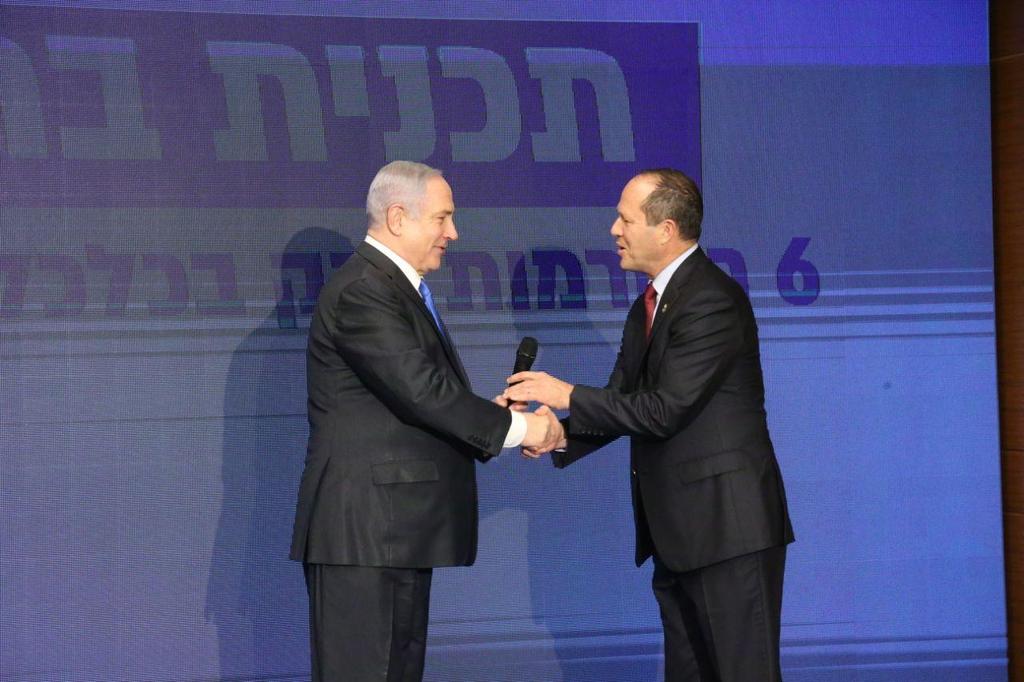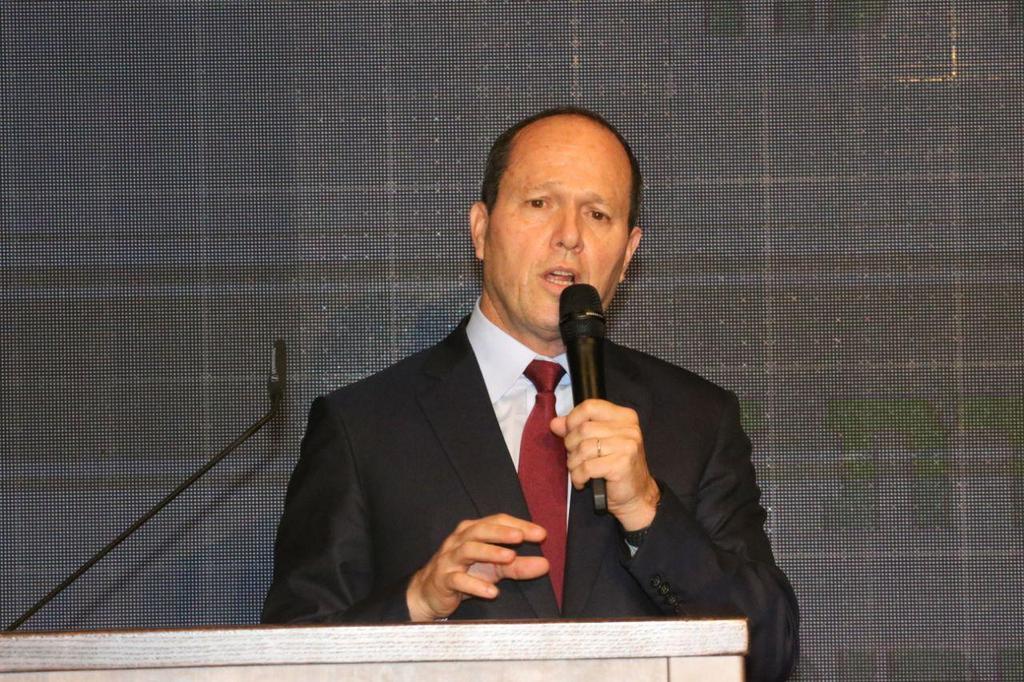Getting your Trinity Audio player ready...
Prime Minister Benjamin Netanyahu and his candidate for finance minister, Likud MK Nir Barkat, on Sunday presented a financial that contains several wide-ranging and ambitious reforms. The plan is set to be implemented by Netanyahu's next government if his Likud party emerges victorious at next month's elections.
Netanyahu said if he is to be re-elected after the March 2 vote, he would lead six major financial reforms, including: lowering house and food prices; massive investments in health care; investment in Israel's socio-geographic periphery in the Negev, Galilee and the West Bank, and investment in small businesses, start-ups and technology.
"The first thing is to drastically reduce food prices in the country," Netanyahu said at a special press conference at the Tel Aviv Stock Exchange. "Currently, food prices [in Israel] are 30% higher than in the rest of the world. We will tear down monopolies and decentralize the [food] market," he added.
"Second thing is to drastically reduce housing prices. We will cut bureaucracy significantly. Sixty percent of the price of an apartment in Israel today is the price of land and taxes," he said.
"The third reform is a sizeable investment in healthcare. We will complete the construction of two hospitals in Be'er Sheva and Kiryat Ata, and in the near future, we will approve [the construction of] two more hospitals.
Netanyahu also said he intends to increase the average number of hospital beds by at least another 700. "We have to cut waiting lines. In a few years, we will no longer see patients lying in hospital corridors – this is unacceptable."
Barkat, who served as the mayor of Jerusalem from 2008 to 2018, took to the stage to introduce a new reform meant to boost Israel's struggling periphery, which includes large investments in the Galilee region in the north, the Negev in the souths and the West Bank.
"We will give our periphery over 400,000 new jobs in the coming decade. The idea is to provide a child from the periphery the same level of education a child living in the center of the country receives," he said.
Barkat also spoke about reforms meant to promote small businesses.
"We need to help them, we need to tear down barriers and give them certainty. It will require us to do three things: freeze property taxes for 5 years, reform business licensing and equaling the social conditions of freelance workers in Israel [to employees working on a salary]."
The last reform introduced by Barkat promotes further investment in Israel's hi-tech market.
"Israel must be a leading player in future technologies. We, in Israel, have a huge potential when it comes to biotechnology and medicine. The same goes for robotics and public transport. Intel has made Israel their international autonomous vehicle hub. We have more ventures and startups that can definitely change the world."
Netanyahu last week asked Barkat to become the next finance minister in his government should he form a coalition after the March 2 elections.
Current finance minister Moshe Kahlon has announced his retirement from politics after the upcoming vote, which will be Israel's third national ballot in less than 12 months.



